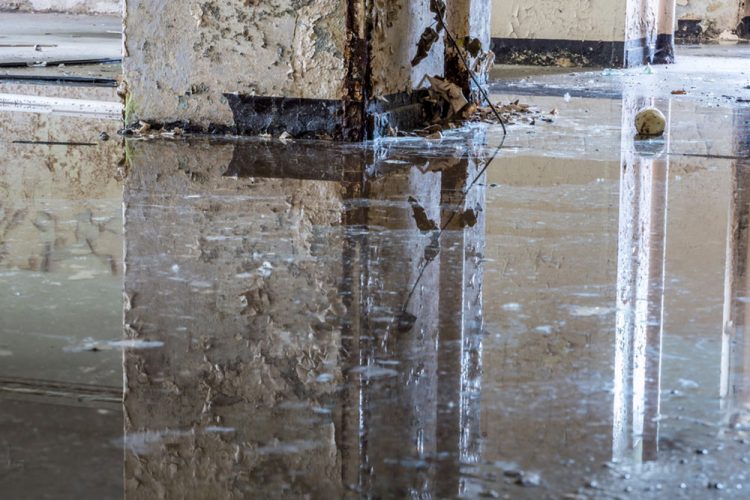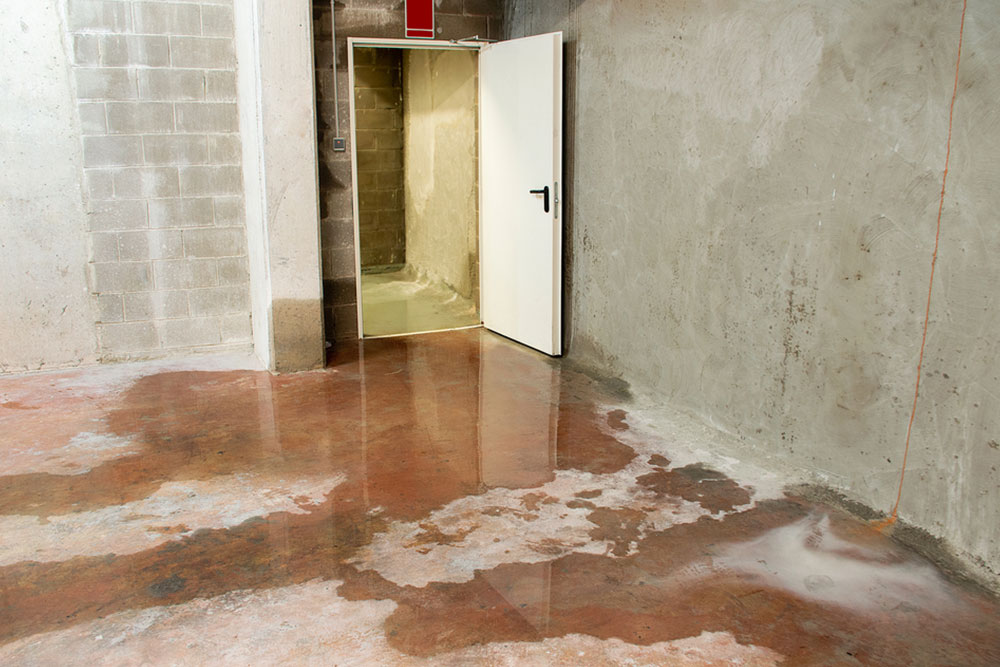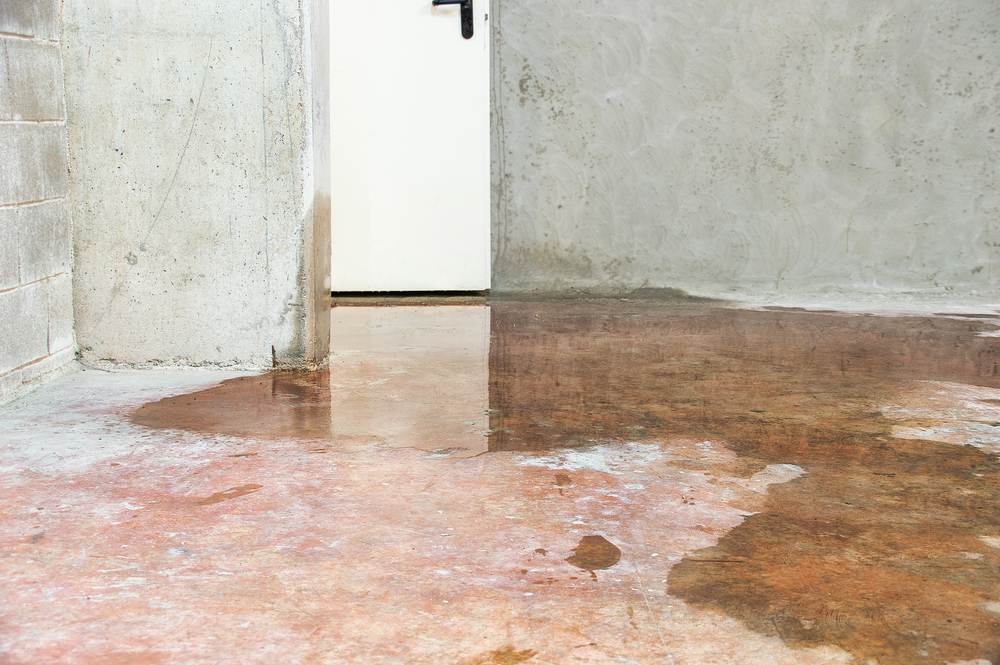How To Prevent Basement Flooding During Heavy Rain
Book today with Z PLUMBERZ of North America.
Heavy rain is one of the leading causes of basement flooding. If you live in an area that experiences frequent rainstorms or heavy downpours, protecting your basement from water damage should be a top priority.
Flooding can result in costly repairs and the loss of valuable possessions. But there are several ways to prevent basement flooding during heavy rain, and you do not need to wait for a problem to arise before taking action.
In this article, we will cover practical tips on how to prevent basement flooding during heavy rain. If you are dealing with issues like clogged gutters or ineffective sump pumps, these steps will help reduce the risk of flooding. Being proactive about basement protection can save you time, money, and stress in the long run.

Why Basement Flooding Happens During Heavy Rain
Understanding why basement flooding occurs during heavy rain is the first step toward preventing it. When a rainstorm hits, water must be properly directed away from your home. If your home’s drainage systems are not functioning well, water can quickly build up around the foundation. This can cause water to seep into the basement, leading to damage to flooring, walls, and furniture.
The main reasons basement flooding occurs during heavy rain include:
- Poor drainage around the foundation
- Clogged gutters or downspouts
- Defective sump pumps
- Improper landscaping or grading around the house
- Cracked foundation walls
Each of these issues can contribute to water pooling around your home’s foundation. Once water finds its way into the basement, it can cause a variety of problems, from mold growth to structural damage.
Key Steps to Prevent Basement Flooding
Taking proactive steps to prevent basement flooding can save you from costly repairs and extensive water damage. By focusing on key areas like sump pump maintenance, foundation sealing, and proper drainage, you can significantly reduce the risk of flooding during heavy rain.
- Install and Maintain a Sump Pump
A sump pump is one of the most effective tools to prevent basement flooding. These pumps are typically installed in the lowest part of your home, often in a sump pit, and are designed to remove water that gathers around the foundation. When heavy rain occurs, the sump pump automatically activates to pump the water out and away from the home.
However, simply having a sump pump is not enough. Regular maintenance is necessary to ensure it operates when needed. You should check the pump periodically to make sure it is clear of debris and working correctly. Additionally, installing a battery backup sump pump can be a lifesaver in case of a power outage during a storm.
- Keep Gutters and Downspouts Clean
Clogged gutters are one of the most common causes of basement flooding. When gutters are clogged with leaves, twigs, and other debris, water cannot flow properly through the downspouts. Instead, it overflows and pools around the foundation, eventually making its way into your basement.
In addition to cleaning your gutters, ensure your downspouts are directing water at least three feet away from your foundation. If necessary, install downspout extensions to carry the water further away from your home. This will help to keep excess water from accumulating near the basement.
- Proper Landscaping and Lawn Grading
The way your lawn is graded can play a significant role in how water flows away from your home. Landscaping that slopes toward your foundation can cause water to collect and seep into the basement. A well-graded lawn will direct water away from your foundation and into the drainage system.
If your lawn is sloped incorrectly, it may be worth hiring a professional landscaper to regrade it. A gentle slope of about six inches for every ten feet will typically suffice to keep water away from your foundation. Proper lawn grading, combined with effective drainage systems, can be one of the most effective ways to prevent basement flooding.
- Seal Cracks and Gaps in the Foundation
Water can seep into your basement through small cracks in the foundation walls. Even the smallest crack allows water to enter, especially during a heavy rainstorm. Inspect your basement’s foundation regularly for any cracks or gaps, and seal them with a high-quality waterproofing sealant. This will prevent water from penetrating the foundation and causing damage to the basement.
In addition to sealing cracks in the foundation, you should also check for gaps around windows and doors. These areas are often overlooked but can contribute to water infiltration. Make sure all seals are tight and in good condition to keep water out.
- Install a French Drain
A French drain is a drainage system designed to redirect water away from your home. This system consists of a perforated pipe placed in a trench, which is then filled with gravel to allow water to flow freely. The perforated pipe collects water from the surrounding soil and directs it away from your foundation.
French drains are particularly useful in areas where water tends to collect around the foundation. They can also be installed around the perimeter of the basement to make sure that water does not have a chance to pool near the walls. Although installation can be costly, it is one of the most effective methods for preventing basement flooding.
- Improve Your Basement’s Waterproofing
If your basement is prone to flooding, it might be time to invest in additional waterproofing measures. This includes applying waterproof coatings to the walls and floor, which will prevent water from seeping in. There are various types of waterproofing systems available, including interior and exterior solutions, each with their own set of benefits.
For interior waterproofing, you can apply a waterproofing compound directly to the walls and floor. For exterior waterproofing, you may need to dig around your foundation and apply a waterproof membrane to the outside. Though these methods can be expensive, they can greatly reduce the risk of water damage in the long run.
How to Make Sure Your Sump Pump Works Effectively
Your sump pump is a key player in preventing basement flooding during heavy rain. While the installation of a sump pump is important, proper functioning requires regular care and attention.
A sump pump operates by moving water away from the basement and into a designated drainage area. When properly maintained, it can prevent water from entering your basement, particularly during heavy rains.
- Regularly Check the Float Switch
The float switch is responsible for turning the sump pump on and off as the water level rises and falls. Over time, the float can become obstructed or stuck, preventing the pump from activating when needed.
It is important to check the float switch regularly to make sure that it is free from debris and moving freely. By testing the float switch before the rainy season, you can reduce the risk of pump failure during heavy rainfall.
- Inspect the Discharge Pipe
The discharge pipe is where the water is released from the sump pump and carried away from your home. Over time, this pipe can become clogged with dirt, debris, or even ice during the winter months.
Before the rainy season begins, make sure the discharge pipe is clear of any obstructions. You can also check the pipe for any visible cracks or damage that could affect its ability to transport water away from the foundation.
- Test the Sump Pump’s Functionality
It’s a good idea to test your sump pump at least once every few months. To do this, pour water into the sump pit until the pump activates. If the pump does not start, you may need to repair or replace it.
Regular testing allows you to identify any potential issues with the pump before a rainstorm strikes. Making sure that your sump pump is operational ahead of time can give you peace of mind during heavy rain.
- Install a Backup Sump Pump
While a standard sump pump is effective, it relies on electricity to function. During heavy storms, power outages are common, and your sump pump may fail due to a lack of power.
Installing a battery backup sump pump will make sure that your home remains protected even during a power outage.
This backup pump works independently of the main sump pump and can continue to remove water from your basement until the power is restored.
- Seal Foundation Cracks and Gaps
Water can seep into your basement through even the smallest cracks in your foundation. Over time, the materials in your foundation can weaken due to settling or other natural causes, leaving gaps that are vulnerable to water infiltration. Sealing these cracks is one of the most effective ways to prevent basement flooding.
- Inspect Your Foundation Regularly
Take time each year to inspect the foundation of your home, especially after heavy rain. Look for any visible cracks or gaps that may have developed over time. Even small cracks can allow water to enter, so it is important to address them promptly.
If you notice any significant cracks or damage, it may be time to contact a professional to have your foundation repaired.
- Use a Waterproofing Compound
To seal minor cracks in your foundation, use a high-quality waterproofing compound or sealant. These products are designed to prevent water from entering your basement through the cracks. Apply the sealant directly to the affected areas, making sure to cover the cracks thoroughly.
If you are unsure about the best product for your home, a professional plumber can recommend an appropriate solution for sealing your foundation.
- Consider Foundation Repair Services
In cases where the foundation has sustained significant damage, sealing cracks may not be enough. Larger cracks or settling issues may require a more extensive foundation repair.
Foundation repair services can address structural issues that may be contributing to basement flooding. These services typically involve repairing or reinforcing the foundation to prevent further damage.
Maintain Your Home’s Drainage System
Your home’s drainage system plays a vital role in directing water away from the foundation and preventing basement flooding. A properly functioning drainage system is fundamental to avoid water accumulation around your home. Regular drainage system maintenance and care will keep your system in top shape and reduce the risk of flooding.
- Clean Your Gutters Regularly
Clogged gutters are one of the leading causes of basement flooding. When gutters become blocked with leaves and debris, water cannot flow freely through the downspouts and away from your foundation.
Instead, water overflows and can pool around the base of your home, leading to potential flooding. Clean your gutters at least twice a year to make sure that they are free from obstructions. If you live in an area with a lot of trees, you may need to clean them more frequently.
- Install Downspout Extensions
In addition to cleaning your gutters, installing downspout extensions is another effective way to protect your basement from flooding. Downspouts are designed to direct water away from your foundation, but they may not be long enough to effectively move water far enough away.
By adding extensions to your downspouts, you can redirect the water even further, helping to keep it from pooling near your basement.
Invest in a French Drain System
French drains are an excellent solution for preventing basement flooding, particularly in areas where water tends to pool around the foundation. This type of drainage system collects excess water from the soil and directs it away from your home, preventing water from seeping into the basement.
What Is a French Drain?
A French drain is a trench that is filled with gravel and a perforated pipe. The pipe collects water from the surrounding soil and directs it away from the home. French drains are ideal for areas where water tends to collect around the foundation or in low-lying areas of the yard.
Let Us Help Prevent Basement Flooding
At Z PLUMBERZ, we understand the importance of preventing basement flooding, especially during heavy rain. Our team of licensed plumbers can help you implement effective solutions to protect your home from water damage. We offer a wide range of services to keep your basement dry. This includes sump pump installations, foundation crack repairs, and more.
We can also assess your home’s drainage system, inspect for any plumbing issues, and recommend solutions that suit your needs.
If you are dealing with frequent basement flooding or are concerned about potential water damage, contact Z PLUMBERZ today to schedule a consultation.
Our team is ready to help you safeguard your home from flooding and water-related damage.
Additional benefits of partnering with us include
-

24/7 Emergency Services, Paperless Communication
-

Reduced Rates and Preferred Pricing
-

Preventative Maintenance Scheduling
-

Online Scheduling and Account Management


